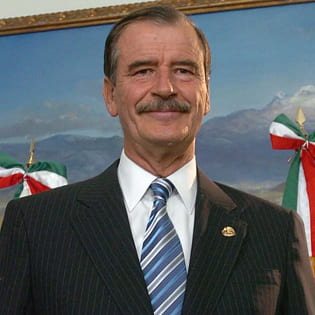UCI to host reception, film screening to kick off residency of Cuban novelist Leonardo Padura
EVENT: Leonardo Padura, an award-winning Cuban novelist and investigative journalist whose stories are the basis for the Netflix miniseries “Four Seasons in Havana,” will be a UCI professor-in-residence in October. A free, public reception with Padura and screening of a documentary about his work, “Living and Writing in Havana,” will kick off his monthlong stay, which will also include visits to UC Berkeley, UCLA and UC Davis.
WHEN/WHERE: 3:30-6 p.m. Thursday, Oct. 4, at the McCormick Screening Room (Humanities Gateway Room 1070) and patio (bldg. 611, grid E7 on campus map: https://communications.uci.edu/documents/pdf/UCI_16_map_campus_core.pdf)
INFORMATION: Parking is available in the Mesa Parking Structure (grid C7 on campus map). Media planning to attend should contact Pat Harriman at 949-824-9055 or pharrima@uci.edu. Parking is complimentary for media who RSVP in advance.
HIGHLIGHTS:
3:30-4 p.m. Reception on the patio of the McCormick Screening Room
4-6 p.m. Screening of “Living and Writing in Havana,” followed by a Q&A with Padura and filmmaker Lucía Lopez (The Spanish-language documentary will be shown with English subtitles.)
BACKGROUND: Padura is best known for his widely translated series of literary-noir detective novels set in Havana. He has been awarded Cuba’s National Prize for Literature and Spain’s Premio Príncipe de Asturias de las Letras. Padura was also named Chevalier of France’s Ordre des Arts et des Lettres, which recognizes those who’ve made significant contributions to arts and literature.
His residency is being sponsored and coordinated by the UC-Cuba Academic Initiative, a diverse, multicampus community of faculty and graduate students engaged in cross-disciplinary, transnational research on Cuba that’s been housed in UCI’s School of Social Sciences since 2007. For more information on the initiative, see https://www.socsci.uci.edu/uc-cuba.
UCI’s Office of the Provost and Executive Vice Chancellor, School of Humanities, School of Social Sciences, Latin American Studies Center, Department of Chicano/Latino Studies and Department of Spanish & Portuguese, as well as the University of California Office of the President, are providing funding support.
